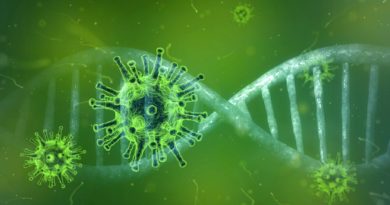RESEARCH: Manuka honey contains natural antiviral compounds that fight influenza (and covid)

New research published in the journal Archives of Medical Research shows that manuka honey is a powerful natural remedy against influenza and other associated diseases – including the Wuhan coronavirus (Covid-19).
Entitled, “Anti-influenza Viral Effects of Honey In Vitro: Potent High Activity of Manuka Honey,” the study looked at the commonly researched H1N1 influenza strain known as A/WSN/3. Researchers infected MadineDarby canine kidney (MDCK) cells with the virus before exposing them to numerous types of honey.
In addition to manuka honey (L. scoparium), scientists also tested the effects of soba (F. esculentum; buckwheat), kanro (honeydew), acacia (R. pseudoacacia), and renge (A. sinicus).
The anti-influenza virus effects of the honey samples were analyzed by growing MDCK cells in 48-well plates and infecting them with influenza virus in the presence of two-fold serially diluted honey samples. Two days later, the cells were fixed and stained in order to assess the degree to which they prevented cytopathic effect, meaning the degree to which the influenza virus infection caused the cells to die and detach from the plate.
All of the honey samples suppressed viral infectivity, the research team discovered, with manuka honey demonstrating the greatest potency. All of their respective antiviral activity was found to be dose-dependent, meaning higher concentrations produced better results. (Related: Honey has also been shown to fight hospital infections and deadly superbugs.)
The research also involved testing the ability of manuka honey to directly inhibit influenza virus growth through what is known as a plaque inhibition assay. The process involved testing with the following four methods:
• Pretreatment of cells: Add manuka honey to cells for one hour and subsequently wash out prior to viral infection
• Pretreatment of virus: Mix manuka honey with influenza virus suspension for one hour before viral infection
• Treatment during infection: Add manuka honey during virus adsorption for one hour and subsequently wash out
• Treatment after infection: Add manuka to agarose gels
The most potent of these was pretreatment with the virus itself, which strongly suggests that eating it can kill viruses inside the body. Moderate results were seen with reduced plaque numbers in the treatment of cells, while the only method that did not demonstrate any growth inhibition was the pretreatment of cells.
Manuka honey could work synergistically with antiviral drugs to produce even better outcomes
Another thing the researchers looked at is how manuka honey might work synergistically alongside conventional antiviral drugs in the neurominidase inhibitor class such as Relenza (zanamivir) and Tamiflu (oseltamivir). This is what they found:
“A combined use of synergistically active antiviral compounds that have different mechanisms of action may provide advantages over single-agent treatments.”
They came to this conclusion through the use of a plague inhibition assay protocol reproduction, though this second time they added both the honey and the drugs. The result was increased antiviral effectiveness from both substances.
Honey of all kinds contains a unique and diverse array of phytochemicals such as phenolic acids and flavonoids. Honey also contains nutrients like rutin and chrysin that have been confirmed through independent study to contain antimicrobial properties.
Rutin and chrysin are found most densely in buckwheat and acacia honeys, while manuka contains high amounts of a substance called methylglyoxal that has verified antiviral properties in treating the foot and mouth disease virus.
Manuka honey contains anywhere from 20-160 times more methylglyoxal than any other type of honey, and this substance shows incredible promise in treating all kinds of viruses.
“Because compounds or plant extracts that exhibit virucidal activity have broad-spectrum, it is possible that the virucidal activity of manuka honey is effective against H5N1 and H7N9 viruses,” the researchers noted in their conclusion.
More related news can be found at Cures.news.
Sources for this article include:
*** This article has been archived for your research. The original version from Natural News can be found here ***


